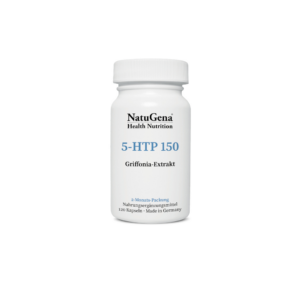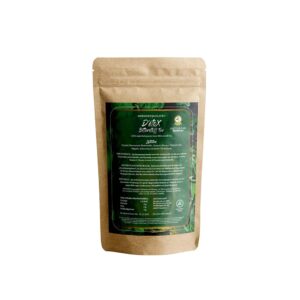Sciene for Health – Ionic iodine
Contents: 1000 drops, concentration: 1mg/ drop
The human body contains between 10 and 20 mg of iodine. Up to 80 % of this is found in the thyroid gland. The remaining 20 % is distributed among the muscles, gall bladder, pituitary gland and salivary glands. Iodine-rich seaweed was already being used for medicinal purposes 15,000 years ago.
20 in stock
Description
Iodine?
Iodine is an important component in the production of the thyroid hormones triiodothyronine (T3) and tetraiodothyronine (T3 or thyroxine). By controlling RNA and protein biosynthesis, thyroid hormones play a major role in the tissue growth, cell differentiation and cell division. They also influence the Metabolism of fat, carbohydrates and protein.
The story
In her book “The Iodine Crisis”, Lynne Farrow traced iodine back to prehistoric times. She was able to find sources from excavations that prove that iodine-rich seaweed was already being used for healing purposes 15,000 years ago. Algae and seaweed also played a role in Chinese, Indian and Egyptian medicine thousands of years ago. The founder of Western medicine, Hippocrates, also prescribed seaweed for healing purposes. Iodine was finally discovered as an element 200 years ago. In 1829, the French doctor Jean Lugol invented the iodine formulation Lugol’s solution. It was subsequently used to disinfect drinking water and to treat many ailments, such as lung diseases, treatment of thyroid disorders, colds, asthma, ulcers, bronchitis, syphilis, acute inflammation, gout, Huntington’s chorea, scrofula, lacrimal sac fistulas, carbuncles, catarrh and other well-known or even bizarre diseases. Back then, the saying “If you don’t know what and why, use iodine and potassium” applied. Up until the 1950s, there were 1,700 remedies with iodine as a medically effective ingredient.
But then iodine was suddenly classified as dangerous for thyroid function on the basis of a study from 1948 and banned. In 2005, Dr. Guy Abraham contested that it must have been a mistake at the time.
Iodine metabolism
The human body contains between 10 and 20 mg of iodine. Up to 80 % of this is found in the thyroid gland. The remaining 20 % is distributed among the muscles, gall bladder, pituitary gland and salivary glands. Iodine is mainly excreted via the kidneys and in small quantities via feces and sweat. The excretion level of iodine via the kidneys, i.e. via the urine, is essentially dependent on the iodine intake. Iodine excretion via the urine can therefore be used as an index for the iodine supply.
In general, the body tries to compensate for the lack of thyroid hormones by growing the thyroid gland. Iodine deficiency therefore leads to an enlargement of the thyroid gland or goitre formation. If more than 10% of the population have a palpable enlarged thyroid gland, this is referred to as endemic goitre. In technical jargon, the area then belongs to the so-called goitre endemic areas. Germany is one of these areas.
Symptoms of iodine deficiency
Iodine deficiency leads to various diseases of the thyroid gland and can lead to serious health problems due to the important role of the thyroid gland in various bodily functions. As already mentioned, iodine deficiency most frequently leads to an enlargement of the thyroid gland and thus a swelling of the neck. This can cause necklaces and clothing to become too tight at the collar. It can also lead to difficulty swallowing and, in extreme cases, even obstructed breathing if the growing thyroid tissue presses on the windpipe. This can lead to uniform growth but also to the formation of single or multiple nodules on the neck.
Other symptoms of iodine deficiency include cold hands and feet, dry skin, brittle nails, muscle cramps, weight gain, poor memory, headaches, depression and oedema.
Iodine in salt
Iodine is often added to refined salt, which we consume not only directly with the salt, but also through iodized animal feed. However, too much sodium chloride (refined table salt) also displaces iodine. In addition, refined salt only contains one form of iodine (iodate in Germany) and often also a lot of chemicals (in addition to the chemical elements sodium and chlorine, often also preservatives such as E 535, E 536, E 551 as well as separating and drying agents) and has been stripped of its minerals. In addition, iodine is extremely volatile as an additive in table salt.
Storage of the product
Please store at room temperature. Do not store in the refrigerator. Keep away from children.
What are ionized minerals?
An ion is an atom that is positively or negatively charged. A positively charged ion is combined with a negatively charged ion. It then becomes something new and available. Plants and animals can thus absorb inorganic minerals (inorganic substances such as rocks and similar materials).
Iodine
- contributes to normal cognitive function
- contributes to a normal energy metabolism
- contributes to the normal functioning of the nervous system
- contributes to the normal production of thyroid hormones and to normal thyroid function
- contributes to the maintenance of normal skin
- contributes to the normal growth of children
Discover the power of ionic iodine
A revolutionary dietary supplement that supports your health and vitality. Our product provides a highly bioavailable form of iodine that is easily absorbed by the body and plays an important role in thyroid function and overall metabolism.
Ionic iodine is an innovative form of iodine that is in an ionized state, which means it is immediately recognized and absorbed by the body. Unlike conventional iodine supplements, which are often difficult to digest and have lower bioavailability, our ionic iodine offers an efficient solution for iodine supplementation.
What does the body need iodine for?
The thyroid gland requires iodine to produce hormones that regulate various bodily functions, including metabolism, energy production and growth. By supporting thyroid function, ionic iodine can help regulate metabolism, boost energy levels and promote overall well-being.
Our product is derived from high-quality natural sources and is free from artificial additives and preservatives. It is easy to take and well tolerated by the body, making it an ideal addition to your daily health routine.
Nutritional information
Nutrients per drop: Iodine 1mg (667% NRV*)
*Percentage of the nutrient reference values according to Regulation (EU) No. 1169/2011
Ingredients
Water, potassium iodide
Consumption recommendation
Take 1 drop every 5th day, or as recommended by a doctor or therapist.
This corresponds to a daily dose of 200μg.
Legal and other information
Food supplements must not be used as a substitute for a balanced and varied diet and a healthy lifestyle.
The recommended daily intake must not be exceeded.
Store at room temperature, closed, dry and out of the reach of children (risk of poisoning).
Dilution in water or other liquids is possible.
More information?
Good literature to look up: Lynne Farrow, The Iodine Crisis and Kyra Hoffmann, Sascha Kauffmann, Iodine. The key to health. – Rediscovery of a forgotten remedy.
Related products
-
 Sale!
Sale!

Natural tobacco without additives 20g – Strong – free ebook
10,90 €Original price was: 10,90 €.9,90 €Current price is: 9,90 €.plus shippingDelivery Time: ca. 10 workdaysAdd to cart -
 Sale!
Sale!

NatuGena® – 5 HTP
36,00 €Original price was: 36,00 €.34,00 €Current price is: 34,00 €.plus shippingDelivery Time: not specifiedAdd to cart -


NatuGena® – Magnesia 7
29,95 €
plus shippingDelivery Time: not specifiedAdd to cart -


D’etox bitter tea
10,00 €
plus shippingDelivery Time: not specifiedAdd to cart



Reviews
There are no reviews yet.